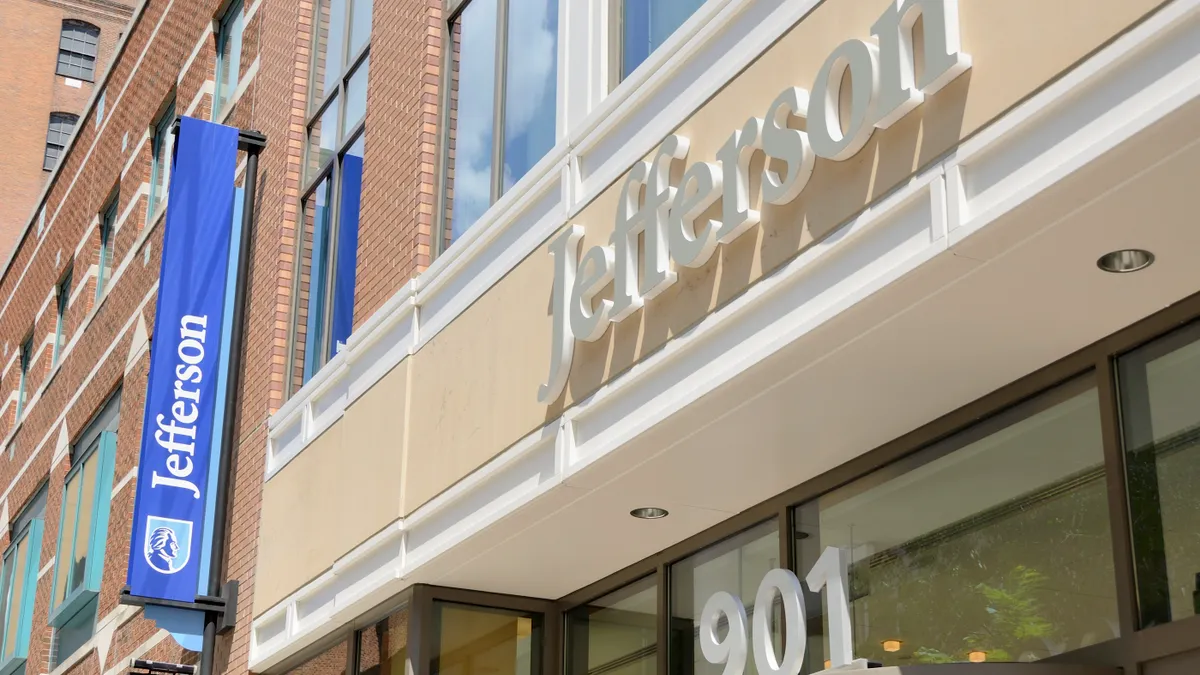A jury has ordered Thomas Jefferson University and Thomas Jefferson University Hospitals, Inc. to pay $15 million to a plaintiff — an orthopedic surgeon who formerly held clinical privileges and a faculty appointment — for violating Title IX when it failed to investigate his claims of sexual misconduct against a colleague.
According to the complaint, filed in June 2020, the inciting event happened at a party the plaintiff held at his home in June 2018. After the party, he had a sexual encounter with a “sexually aggressive” resident physician at TJUH, despite the plaintiff being intoxicated and saying that he did not consent.
Three days after the encounter, according to the plaintiff, the resident and her husband attempted to extort money from him. He reported the sexual misconduct and extortion attempt that same day, according to the complaint, after which the resident filed her own complaint alleging nonconsensual intercourse — a move he alleged was taken in retaliation for his complaint.
According to the plaintiff, the university coerced him into taking a leave of absence while not doing the same for his accuser; failed to investigate the plaintiff’s own allegation or the potential for retaliation on the resident’s part; and failed to review potentially exculpatory evidence, including a threatening voicemail from the resident’s husband.
In coming to its decision, the jury deliberated for two and a half hours and considered harm to the plaintiff’s career and reputation as well as lost income and potential earnings, according to a report in The Philadelphia Inquirer. The judgment was handed down Dec. 11.
The University plans to appeal the decision, according to a statement provided to HR Dive.
“We are disappointed in the jury’s verdict and continue to believe Jefferson treated both parties fairly and equitably in this matter between a faculty member and a resident physician learner,” Irene Contreras Reyes, senior director of news and media relations for Jefferson Health, said. “Nevertheless, we respect the jury process and thank the jurors for their service. Jefferson will consider all appellate options available to it.”
In the complaint, the plaintiff pointed to the “Dear Colleague Letter,” released by the U.S. Department of Education’s Office for Civil Rights in April 2011. The letter — rescinded in September 2017 under then-Secretary of Education Betsy DeVos — advised universities to be more victim-centered in their response to Title IX complaints. According to court documents, although the plaintiff was the first to file a complaint, he was treated as the “respondent,” or aggressor, motivated by “gender-bias against [the plaintiff] as a male accused of sexual assault.”
While Title IX is specific to university environments, the Jefferson case may offer some lessons for HR professionals. Title VII of the Civil Rights Act of 1964 applies to most employers and similarly prohibits discrimination based on gender — as well as race, religion and several other characteristics.
While it’s more common to see discrimination cases in which the plaintiffs are minorities and women, the past few years have also seen White, male plaintiffs prevailing in their Title VII complaints, including an executive who said he was terminated just prior to becoming eligible for a stronger benefits package and replaced by two women. (The employer in the case, Novant Health, appealed the decision in November 2022.)
To avoid discrimination claims that come from well-intentioned approaches or policies, HR should conduct thorough and good-faith reviews of all complaints and involve counsel in their development of DEI policies, experts have suggested.















